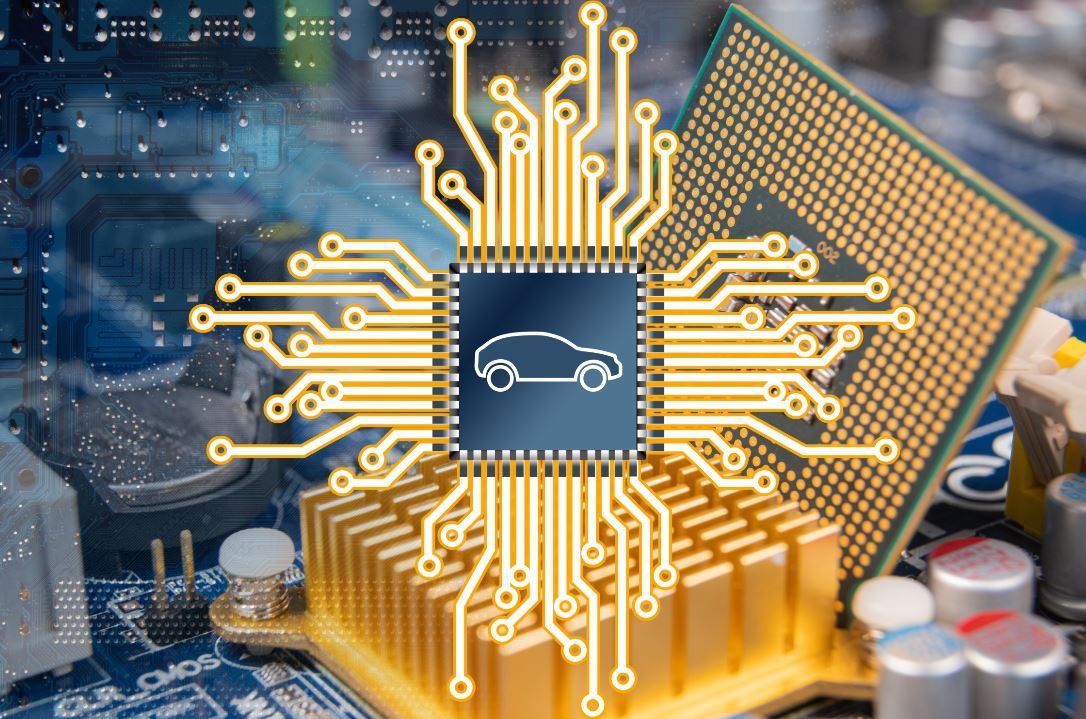The prolonged global semiconductor shortage is having a sweeping impact on a wide range of sectors ranging from cars and computers to smartphones and gaming devices. South Korea, home to major chipmakers and tech players, is keen to soften the effect, but the outlook remains mixed, experts said.
Last week, German automakers Daimler and BMW were forced to temporarily slow down or halt assembly lines, citing the global semiconductor drought. Automakers elsewhere faced similar disruptions caused by the chip scarcity, with many factories yet to reopen and customers waiting weeks to get their cars.
Experts said the disruption is wiping out the chance to make up for losses carmakers had to swallow in the aftermath of the COVID-19 outbreak, as demand rebounds from the downturn sparked by the pandemic.
The automakers had to cut the purchase volume of chips used in cars after the COVID-19 pandemic hit the world, projecting a steep decline in demand. Now that vaccination rollouts are underway around the world, demand is bouncing back strongly, which in turn worsens the chip shortage situation.
The computer industry is confronting the same problem. Apple and Samsung Electronics earlier said the chip shortage is affecting their production in a way that could lower sales of laptop and desktop computers.
Noticing a robust demand for smartphones, laptops and game consoles during the pandemic, major chipmakers ramped up related production, but supply turned out to be far lower than the pent-up demand.
The chip shortage is expected to continue, as it takes time for chipmakers and parts manufacturers to set up new factors and customize systems, experts said.
“The chip production volume is likely to reach a full capacity in the third quarter to meet the surging demand,” said Jeon Byeong-seo, a professor at Kyung Hee University. “But supply will be much lower than growing demand from automakers, smartphone and electronics manufacturers.”
Jeon said there are just five or six chipmakers capable of producing the latest cutting-edge semiconductors. Even if they build up production capacity now, it will take at least six months before they can put out the chips, and around 50 parts makers have to customize the chips, extending the period before chips get distributed in the market.
Currently, US tech companies are at the forefront of developing new semiconductor technologies, but the production is largely done by chipmakers in Korea, China and Taiwan. These Asian countries are not only the key production bases, but also the chief buyers of final products that contain the chips.
The bottleneck clogging the entire supply chain of semiconductors, therefore, will not be resolved unless companies find a solution to iron out the key issues linked to Asian players, Jeon said.
While the US is building six semiconductor plants from this year through next year, China and Taiwan are each setting up eight plants during the same period. Korea and Japan are set to build two factories each. Out of 29 factories, 15 are semiconductor fabrication plants, or foundries.
The smartphone industry has handled the chip shortage problem relatively smoothly, largely because major manufacturers tend to secure the inventory of key parts in advance, a practice that helps them continue production for around six months without worries about sudden disruptions.
But such inventory is also feared to hit a bottom in the coming months as the chip shortage continues for longer than expected, industry watchers said. According to media reports, some manufacturers are cutting down on production volume, while jacking up prices to shore up their profits.
Market researcher Strategy Analytics said that the global average of smartphone’s wholesale prices rose by 5 percent in the second quarter of this year, marking a significant rise from about 2 percent increase in the past years.
Google’s decision to launch its newest smartphone model only in the US and Japan also signals that chips are in short supply. Samsung Electronics earlier denied rumors about the discontinuation of the Note series, saying it will not be produced this year due to the chip shortage.
For smartphone makers, the shortage involves not only power management but also display driver and application processors. Chips related to LTE and 5G solutions are also being affected.
Analysts said the global shipment of smartphones would inch up by a mere 1.3 percent to 771 million units in the second half of this year, little changed from the year-earlier period.
Industry sources said smaller electronics makers could face problems in securing chips if the semiconductor shortage continues.
By Yang Sung-jin (
insight@heraldcorp.com)




![[Herald Interview] 'Trump will use tariffs as first line of defense for American manufacturing'](http://res.heraldm.com/phpwas/restmb_idxmake.php?idx=644&simg=/content/image/2024/11/26/20241126050017_0.jpg)

![[Health and care] Getting cancer young: Why cancer isn’t just an older person’s battle](http://res.heraldm.com/phpwas/restmb_idxmake.php?idx=644&simg=/content/image/2024/11/26/20241126050043_0.jpg)

